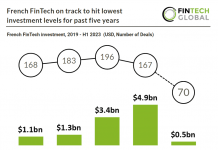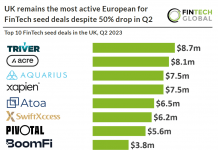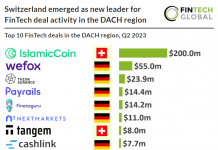As cryptocurrencies continue to gain popularity around the world, the UK parliament has formed the Crypto and Digital Assets Group to support innovation and regulation of digital assets.
Its goal, according to the group chair SNP MP Lisa Cameron, is to ensure new rules for the digital asset industry will support innovation.
Governments around the world are still divided on how they should handle cryptocurrencies. El Salvador became the first country to make bitcoin legal tender, with the country’s president stating this move would make it “easier for Salvadorans living abroad to send money home.â€
However, this move was not supported by everyone. The World Bank declined to help El Salvador with the integration of bitcoin into its currency system. The reason was due to “environmental and transparency shortcomings of the digital asset.â€
While other countries have not accepted these digital assets as legal tender, many have regulatory bodies working to assess their use. There has also been a rise in central bank digital currencies (CBDC) over the past year. Nigeria, Thailand, Bhutan, South Korea and Singapore all revealed new plans for CBDC pilots or studies. The UK is falling behind many countries in the digital asset world.
The launch of the Crypto and Digital Assets Group was welcomed by many professionals across the sector and how it could support greater adoption.
David Henderson, a financial services regulatory expert at Browne Jacobson, said “The FCA and HM Treasury have made it clear they are concerned that consumers are being harmed when they engage with cryptoassets. Significant concerns include consumers having a poor understanding of the technology, consumers being targeted by misleading or fraudulent cryptoasset advertising and, many cryptoasset firms are not meeting anti-money laundering requirements.
“There is an immediate opportunity here for the Crypto and Digital Assets Group to engage with the FCA and HM Treasury to address these concerns and offer the expertise of its industry members.â€
The fears of criminal activity are clear with cryptocurrency. A recent report from Chainalysis found illicit addresses received $14bn in deposits during 2021, which was almost twice the amount they collected in 2020. Over 80% of this illicit revenue came from scams, which Chainalysis attributes to a rise in ‘rug pulls.’ In these schemes a developer seemingly creating legitimate cryptocurrency projects with the aim of stealing investors’ money and disappearing.
It is not just scams that cause problems. The anonymity of the currency makes it easier for money laundering. Last year, the Met Police seized a record £180m in cryptocurrency as part of a suspected money laundering case. The Financial Conduct Authority also expressed its concern of the assets last year, claiming a “significantly high†amount of cryptocurrency firms fail to meet UK requirements on money laundering. It has also warned consumers multiple times on the dangers of scams in the space.
With high criminal usage, it is surprising the body has taken this long to form. Thomas Cattee, head of white-collar crime at Gherson Solicitors, said, “Gherson Solicitors have been arguing for some time of the need for a bespoke UK crypto regulation regime and this group could be a positive step in that direction. As Gherson Solicitors have argued, A bespoke UK regime would better enable to UK to address myriad issues, including enhancing consumer protections whilst also supporting innovation.â€
Criminal activity is not the only thing to have stalled adoption. Other barriers include a lack of education, climate concerns and regulatory supervision. Katharine Wooller, MD of crypto wealth specialist Dacxi, said, “Given crypto offers the ability to significantly improve financial inclusion, efficiency of capital markets, wealth generation, and taxation revenue it deserves to be taken seriously and given a chance to thrive.â€
There is a growing interest in digital assets from consumers and governments need to keep up to ensure people are protected. According to Finder.com, over half of 42 cryptocurrency experts it surveyed on the future of the assets believed bitcoin will become more dominant than money issued by central banks within 30 years.
It is estimated that over two million UK consumers own cryptocurrency, a figure that will continue to grow. As more people look to embrace the digital asset, there needs to be the same level of strict protections in place that traditional financial systems have.
Wooller believes the new group should be welcomed as a hotspot for innovation and economic growth. Wooller said, “Crypto deserves the spotlight and, frankly, a friendlier reception – the government and regulatory stance on crypto has been, thus far, at best, disparate – characterised by fear and hostility. I hope that the group can provide a much-needed coherent approach to the crypto industry; the current lack of clarity is off putting to investors and crypto businesses alike.â€
The Crypto and Digital Assets group is backed by digital asset trade association Crypto UK, which was originally created by seven cryptocurrency companies. The body, which was founded in 2018, has consistently lobbied for regulations in the crypto space. Speaking on the new parliamentary group, CryptoUK executive director Ian Taylor said, “Our primary focus will be education, education, education… There is no real advocacy and education at that level around crypto assets.†The trade association will serve as the parliamentary group’s secretariat, spending just under £50,000 this year to support the group, according to public filings.
While the group is a welcomed sign, it is only a small step. It will take time before regulations are made. Dr. Hammad Hussain, lecturer in FinTech at University of East London, said, “Absolutely. When it comes to the crypto sector there are countries which are far ahead of the UK. Surprisingly the adoption of crypto in third world and poorer countries is more as compared to the first world countries. Whereas it should have been the other way round. For example, the use of blockchain technology to transfer funds is widely adopted in Asian, African and Middle-Eastern countries as compared to the Western Countries.â€
Echoing a similar sentiment, Cattee said, “Europe for example is well ahead, the European Union Markets in Cryptoassets Regulatory Proposal (“MiCAâ€) was released in September 2020. However, this group is an encouraging sign that steps are speeding up and hopefully the UK will be able to catch up in this exciting new area with enhanced regulations and also be business driven. Developing a bespoke regime is the first key stage.â€
The question is, what should the first moves of the new group be? Cattee expressed the need for enhancing consumer protections, and ensuring innovation is supported so the UK’s sector can compete globally.
Similarly, Wooller called for an analysis of the strengths and weaknesses of the current players, and the opportunities and threats posed to retail investors. One important area Wooller believes the group must address is having all relevant parties involved in operations. “self-appointed trade bodies can often have sporadic take up and it is critical that a broad variety of voices are heard, from crypto firms, the regulator, and innovation bodies.â€
Hussain added, “One of the first actions of the group should be to normalise crypto exchanges such as Binance which are not allowed to operate in the UK. For example, Binance is not able to collect funds from UK clients because of a ban by the FCA. Furthermore, the nature of crypto trading also involves trading derivatives, the UK regulation is very strict when it comes to trading derivatives. The group should not only pursue one but many actions to normalise crypto trading and investment in tokens in the eye of the regulator.â€
Wooller concluded, “The UK prides itself on being a centre of FinTech innovation, crypto has too long been the weird cousin no one talks about! Crypto is no longer a small cog in the fintech ecosystem – the market cap is currently £1.4trn. Should the UK government not take the digital assets industry more seriously it will be missing out on a thriving and ever-growing industry creating much needed wealth and taxation revenue for the UK.
“Crypto should be considered an important part of the broader drive for innovation in the UK and regulated as a critical part of the financial infrastructure – and deserves significantly more political clout than it currently enjoys.â€
Copyright © 2022 FinTech Global











